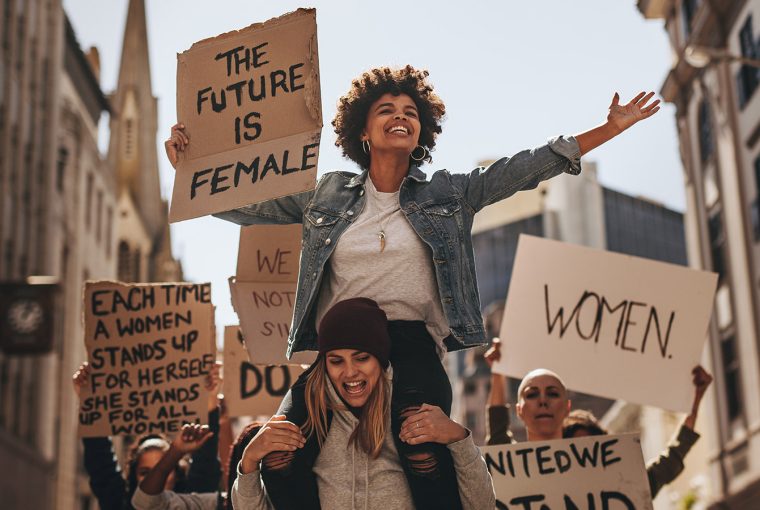It’s kind of crazy that in 2023, we need “innovative” approaches to bring us closer to gender equality. That’s why a theme to this year’s Women’s History Month is embracing equity.
I’ve collaborated with girls and women worldwide for my entire professional career and I’m going to let you in on a little secret… they already have the answers.
You know the old quote, “If you judge a fish by its ability to climb a tree, it will live its whole life believing that it is stupid”? Here’s the thing, we judge everyone – women, children, BIPOC, LGBTQIA+, communities in the global south, etc. by a yardstick created by and for Western White Men.
But maybe we don’t want what those men are selling? In which case, why are we letting them judge what is of value? What is working? What are the goal posts?
Inequality in business
Let me give you just one simple example. When we look at entrepreneurial projects, there are some pretty clear ideas about what venture capitalists, investors, and the general public expect to see.
Unsurprisingly, one thing they expect to see is male leaders. All-women startup teams secured just 1.9% of venture capital (to add insult to injury, that’s a DECREASE from 2021). And with Black women founders? That number drops to 0.34%.
Our society doesn’t trust women with money the same way we trust men – which might be part of where we messed up because women invest 90% of their income back into their families where men invest just 35%. And we see these differences at every level – from startups raising multi-million dollar investment rounds to microfinance projects.
What women are doing
Rain for the Sahel and Sahara works with women from nomadic Nigerien communities to establish savings and loans groups so they can access funds (and training) to launch their own entrepreneurial projects. This way they could earn an income to build greater autonomy and agency for themselves and their kids. In a typical western model, we’d want to see competition – that’s what makes a capitalist market thrive… but that’s not how Nigerien women responded to the challenge.
Instead of launching projects where they would compete to undercut one another, fighting over a small market with limited opportunity – they dreamt bigger. The women launched cooperative projects where their business would increase business for their neighbors and vice versa.
Does that display a lack of entrepreneurial acumen? I don’t think so. I think it shows a healthy regard for the wellbeing of your community and an innovative approach to meeting your needs in a way that uplifts your community – power with instead of power over.
Female groups to support
If we can find a way to be open to women’s innovations, women can lead the way to a gender equal future. First, we need to acknowledge that innovative approaches also require innovative understandings of how to measure what works.
In honor of Women’s History Month and the innovation of women worldwide, please consider donating to, volunteering with, learning from, or otherwise uplifting founders, women-led businesses, and organizations supporting women and girls!
Check out one of the links below or find one of your own!
- Girls Who Code is on a mission to close the gender gap in technology and to change the image of what a programmer looks like and does.
- Bridges4Life helps the Transgender Non-Conforming Community by providing services to children in the foster care system, young adults, and surviving sex workers.
- Midwest Mujeres focuses on education, employment, and mental health and is dedicated to recruiting women with barriers to re-entry work from a long pause or formerly incarcerated women. Facilitators are skilled in holding spaces that foster safety for women, especially women of color.









